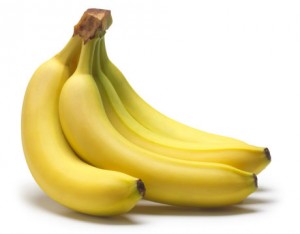Be very very quiet. It’s earnings season (Chiquita Brands and Linn Energy)
Benjamin Graham gave two useful pieces of advice that are applicable during earnings season. First, don’t pay too much attention to the results of a single quarter. Second, when paying too much attention to the results of a single quarter, make sure that you strip out the nonrecurring events in order to get a better picture of actual earnings power.
So, last week two stocks I’ve recommended here have reported quarterly earnings (as have several others, but I’m focusing on these two). The first is Chiquita Brands (CQB), and the second is Linn Energy (LINE).
 Chiquita Brands reported earnings of $1.40 a share apart from a nonrecurring profit, the sale of some of its interest in a fruit drink concern to Danone. This caused the share price to rise to over $14 a share, producing a 10x multiple of this quarter’s earnings alone. Of course, this is typically Chiquita’s biggest quarter, so I don’t think that too much should be made of this.
Chiquita Brands reported earnings of $1.40 a share apart from a nonrecurring profit, the sale of some of its interest in a fruit drink concern to Danone. This caused the share price to rise to over $14 a share, producing a 10x multiple of this quarter’s earnings alone. Of course, this is typically Chiquita’s biggest quarter, so I don’t think that too much should be made of this.
However, this is still notable because Chiquita Brands also moderated its full year earnings forecast to $80-90 million in comparable earnings, down from the $100-120 million they claimed last quarter. Normally such an event would dampen market enthusiasm, but considering the European debt crisis reached the critical phase during last quarter, and the Euro dropped briefly to below 1.20, this came as no surprise. Furthermore, this forecast is based on the the assumption that the euro will stay at around 1.26. It is in fact 1.30 as of this writing, and may increase further now that the Europeans are fetishizing austerity.
Now, as I mentioned before, I have very sanguine views of inflation and so I don’t think it is vitally important to close the deficit gap very soon, particularly with such an anemic looking recovery. This applies doubly so in Europe, where the social safety net is much larger and so austerity actually has some meaning. So, this un-Keynesian move by Europe will possibly slow or even shrink the European economy, make their exports more expensive, and possibly result in the occasional riot. But, it is more likely than not that it will cause the Euro to go up against the dollar, which is good for Chiquita Brands.
Of course, Chiquita is now reaping the benefits of the change to a formerly unequal tariff regime, which based on current volumes will save them $30 million a year, rising to $60 million when the next phase of the tariff adjustments occur by 2017 or 2019. Being able to compete with banana growers from regions not subject to the tariff might even allow them to increase their volume in future, particularly in the face of overall banana price declines. Of course, the wise value investor does not indulge in rosy projections of the future, but based on their current showing alone Chiquita is still nicely positioned. If earnings for the year are $80 million their current P/E is 8.25, and at $90 million, 7.33.
Chiquita also managed to pay down another $20 million in debt this quarter, and depreciation and amortization has run to $29 million year to date, with capital expenditures at only $16 million year to date, so that appears to be an extra $26m in annualized free cash flow. But I should note that historically capital expenditures have run higher than depreciation.
During their earnings call, Chiquita also mentioned that they wanted to buy back another $40-$50 million in debt before they would feel comfortable with share buybacks or other ways to return cash to investors. Of course, that’s several quarters of free cash flow away, and a lot can happen in several quarters, so I wouldn’t put too much stock in it. But the better their interest coverage becomes, the more likely it is that they can refinance their high-interest borrowings, which would also produce a substantial benefit to shareholders.
On the whole, then, I am very pleased with Chiquita’s performance and despite the advance in share price, I think Chiquita is still underpriced.
Leave a Reply